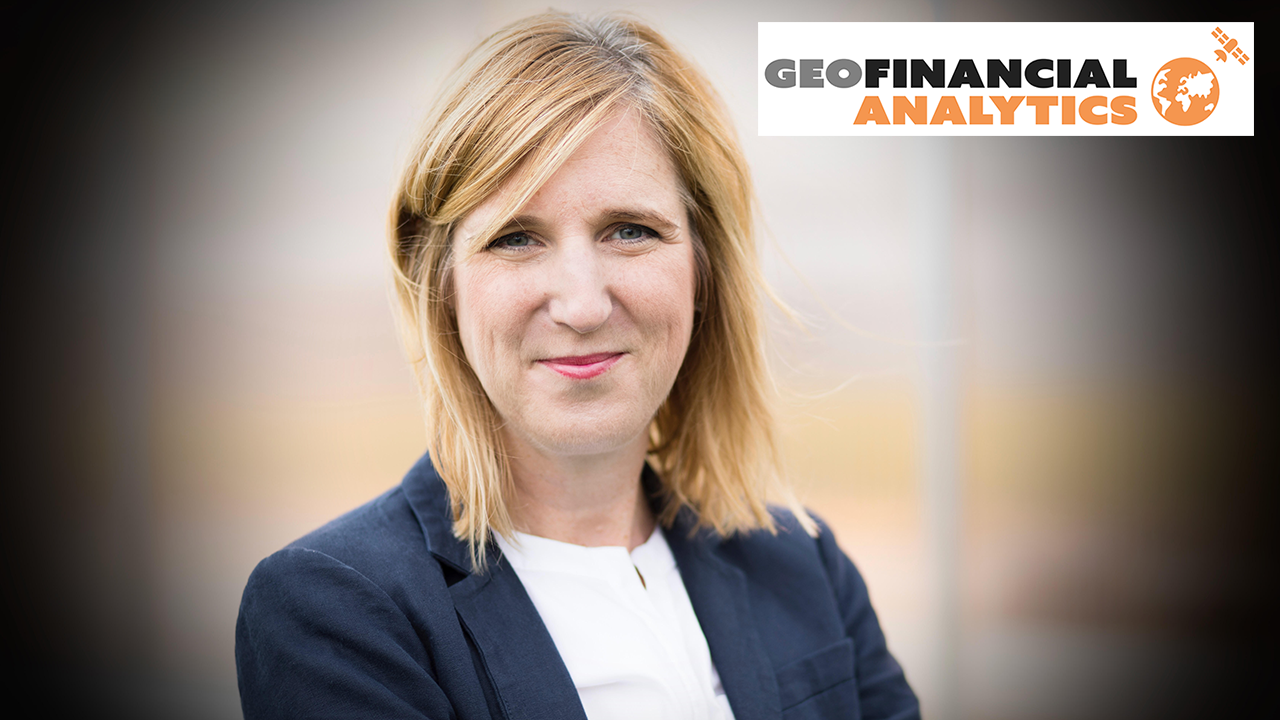
When it comes to tackling climate change, Jessica Hellmann wears many hats. She is the director of the Institute on the Environment and the Ecolab Chair in Environmental Leadership, professor in the Department of Ecology, Evolution, and Behavior in the College of Biological Sciences, and, more recently, an entrepreneur whose research led to the establishment of Geofinancial Analytics, which measures methane emissions and sells that information to impact positive change within the private sector.
Established in late 2018, Geofinancial Analytics uses satellites to measure the real-time methane footprint of energy producers and provide that information to customers in the financial sector to drive accountability and rapid change. The company recently won first place in the 2022 Global InsurTech Competition organized by Cookhouse Labs, which recognized Geofinancial Analytics’ MethaneScan® as a “forward-looking product” that will help address methane emissions systematically across multiple industries, including insurance underwriting.

Starting a company is a third pathway to impact. “If you really want to make a difference in climate change, you have to affect the money,” Hellmann explained. “The work scientists do to describe the impact is important, but it’s not like the global economy picks up the paper or reads a journal article and decides to make changes. Providing information that has private commercial value is a completely different way of affecting the world.”
Hellmann and colleagues wrote a paper discussing the transformative value of providing real-time observations about sustainability practices to the capital markets, which they coined geofinancial engineering. They theorized that the best way to affect change in the private sector is to take information about greenhouse gas emissions and make it useful to banks, hedge fund managers, and insurance companies that make investments and underwrite assets. Hellmann and colleagues decided that they could be the ones to bring this idea to market, and Geofinancial Analytics was born.

“For our model to work, you need to have something you can see or measure; this information has to be relevant to a company or the people who are moving money around; and it needs to be important,” Hellmann said. “And that line of thinking will lead you to methane and to the gas and oil sector.”
While the company’s initial offering focuses on methane, the idea of compiling data, attributing responsibility, and selling this information to financial markets has a much broader set of applications, which Hellmann hopes to explore once the company becomes more established. Geofinancial Analytics recently developed a strategic partnership with a company called Signal Climate Analytics.The company also now sells data on the Bloomberg platform for use in real-time trading and risk management.
“Getting our first paying customers suggests a shift from ‘this is an interesting idea’ to ‘there’s someone out there who wants this information,’” said Hellmann. “The pathway to impact through the private market is new to me. I think it’s really interesting, it’s profoundly important, and I think it’s something that other impact-oriented researchers should think about too.”